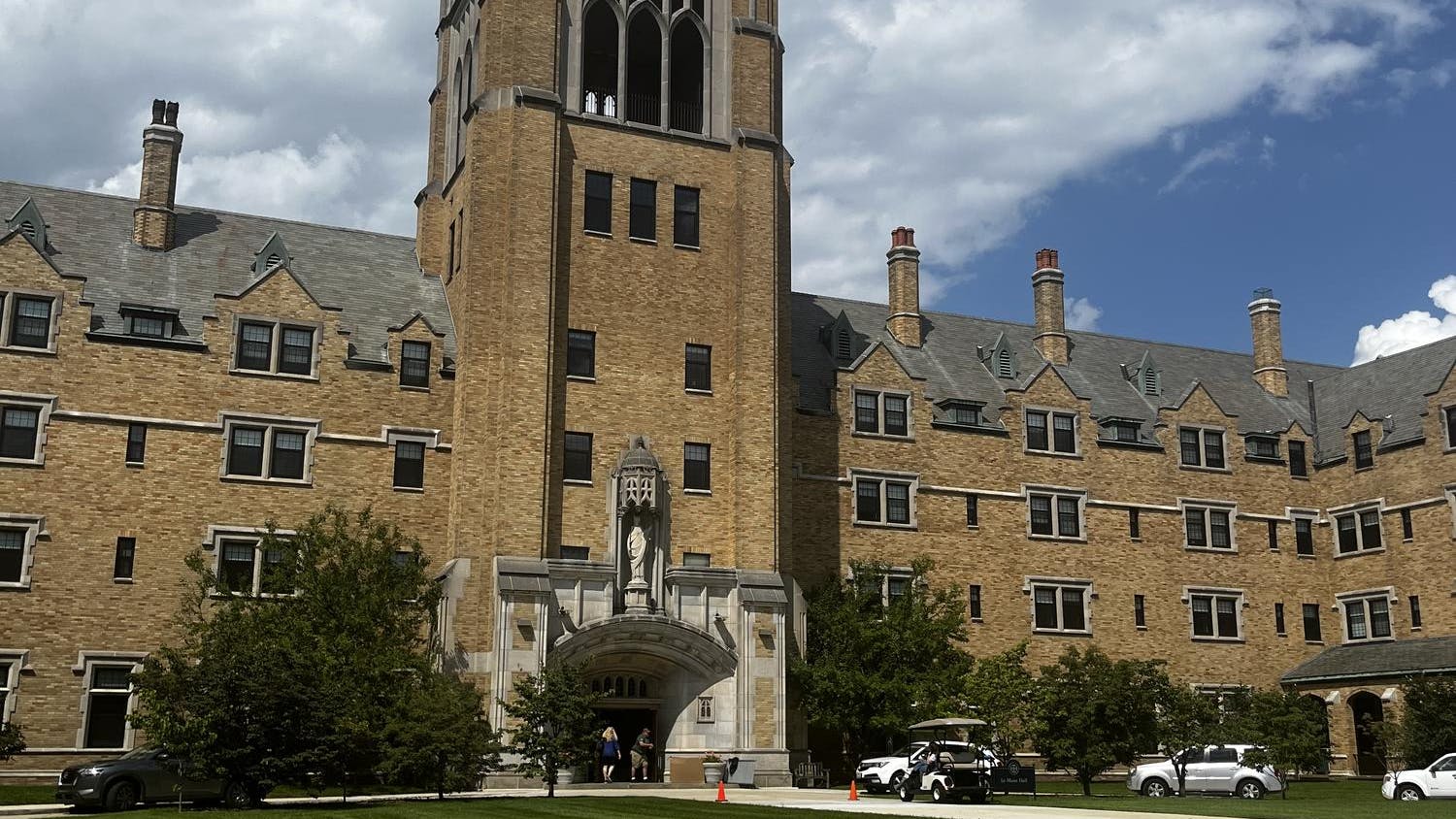This report was updated at 11:42 a.m. on July 20.
The Supreme Court ruled July 8 that employers with religious or moral objections do not have to help provide insurance coverage for contraceptives in the case of The Little Sisters of the Poor v. State of Pennsylvania.
This ruling applies to the section of the Affordable Care Act which, as defined under the Obama administration, required businesses to provide free contraceptives under company insurance. The Trump administration first announced it would roll back the birth control mandate in October 2017.
University President Fr. John Jenkins praised the Supreme Court for their decision in a statement last week.
“Americans of all faiths or none should welcome today's Supreme Court ruling for upholding religious liberty against government's interference with the ability to act in accord with religious principles,” he said.
When asked for comment, University spokesperson Dennis Brown said it was not immediately clear whether the court’s decision would affect the University’s insurance coverage.
“It's uncertain whether there is an immediate impact on the University,” he said in an email. “It is still being reviewed.”
Brown said people who require birth control for medically necessary purposes will still be able to receive contraceptive care under the new ruling.
Irish 4 Reproductive Health (I4RH), a nonprofit, independent organization advocating for reproductive health rights at Notre Dame, said the lawsuit did not account for the fact that religious employers serve employees who may not necessarily share their beliefs. Brown did not comment on the status of the lawsuit, saying direct questions should be taken up with I4RH’s lawyers.
“Notre Dame’s support of the ruling suggests that the diverse community it vocally celebrates must adhere to its specific set of religious beliefs, thereby diminishing the beliefs of its students, staff, and faculty who may have no qualms over the use of birth control,” the organization said in an email.
Currently, “certain forms of IUDs and emergency contraception are not covered at all by University insurance plans,” according to previous Observer reporting.
I4RH said the organization wants to see an increased commitment by the University to helping marginalized members of the Notre Dame community, despite the new ruling.
“To us, that means making all FDA-approved forms of contraception available without copay to students, staff, and faculty as guaranteed under the ACA,” the email said. “Restricting this right forces religious beliefs on people who may not share them and interferes with medical treatment agreed to between a patient and their medical professional.”
In June of 2018, the National Women's Law Center (NWLC) filed a lawsuit on behalf of I4RH against the University for entering into “an unlawful settlement agreement between the Trump-Pence Administration and Notre Dame to deny students, employees, and their dependents insurance coverage of birth control guaranteed to them by the Affordable Care Act (ACA),” a press release from the NWLC said.
The Trump-Pence administration and the University filed to have the suit dismissed. However, in January, I4RH was cleared to move forward with their case. The organization said the lawsuit has not been affected by the Supreme Court’s ruling in this case, and will continue to proceed as planned.
"It is important to remember that this ruling is not fully resolved in regards to its constitutionality, nor does it address several of the arguments we are bringing to the court,” the email said. “The Little Sisters v. Pennsylvania ruling did not in any way address the constitutionality of the settlement Notre Dame and the Trump-Pence administration entered into.”
I4RH said the lawsuit will not affect their mission to advocate for contraceptive care and reproductive freedom at Notre Dame.
“We will continue fighting, in court and out, for access to contraceptive care for people who need it and are unable to access it due to a lack of healthcare on campus,” the email said. “Our current plans are to continue helping the Notre Dame community gain access to sexual health resources and education as safely as possible, as has always been our mission.”
Managing Editor Mariah Rush contributed to this report.













